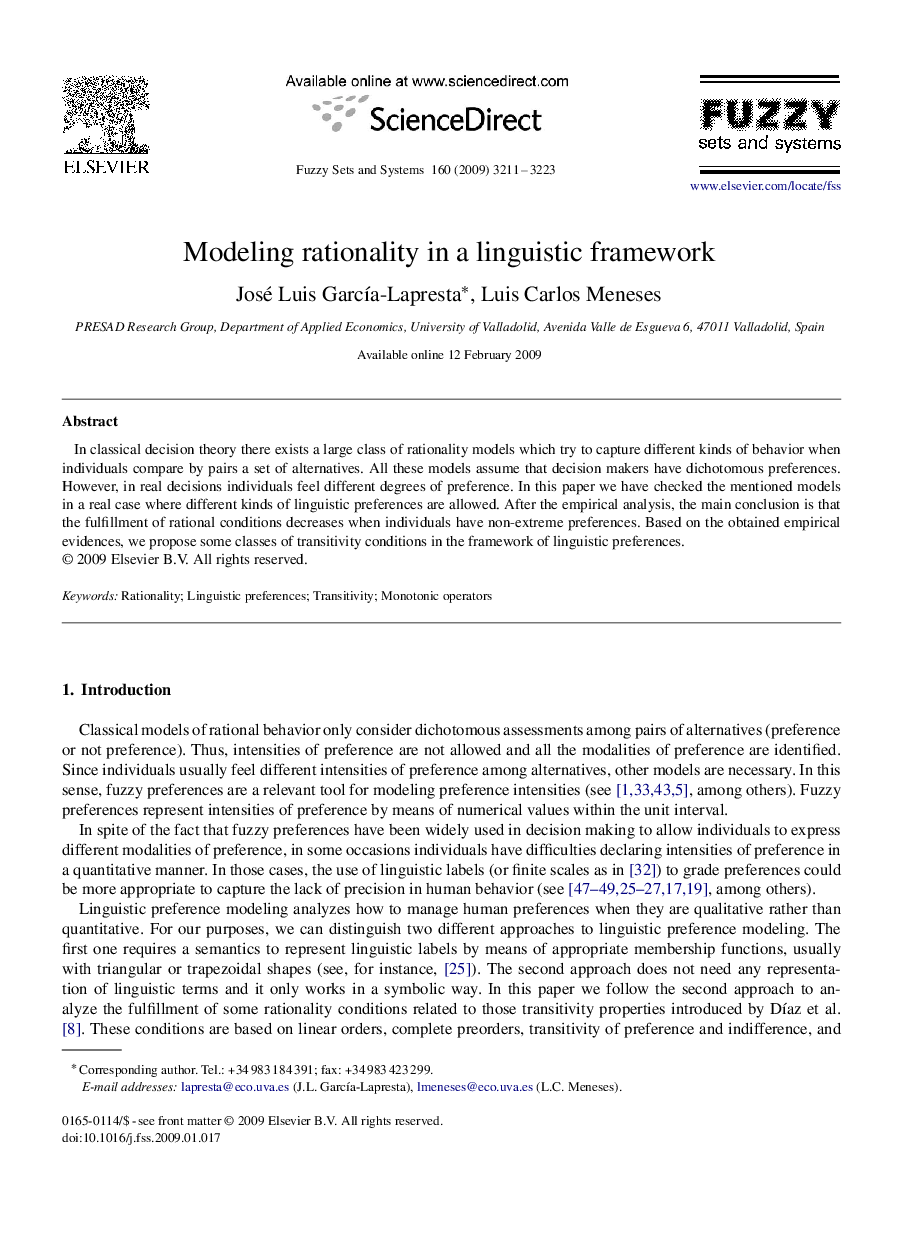| Article ID | Journal | Published Year | Pages | File Type |
|---|---|---|---|---|
| 390699 | Fuzzy Sets and Systems | 2009 | 13 Pages |
In classical decision theory there exists a large class of rationality models which try to capture different kinds of behavior when individuals compare by pairs a set of alternatives. All these models assume that decision makers have dichotomous preferences. However, in real decisions individuals feel different degrees of preference. In this paper we have checked the mentioned models in a real case where different kinds of linguistic preferences are allowed. After the empirical analysis, the main conclusion is that the fulfillment of rational conditions decreases when individuals have non-extreme preferences. Based on the obtained empirical evidences, we propose some classes of transitivity conditions in the framework of linguistic preferences.
